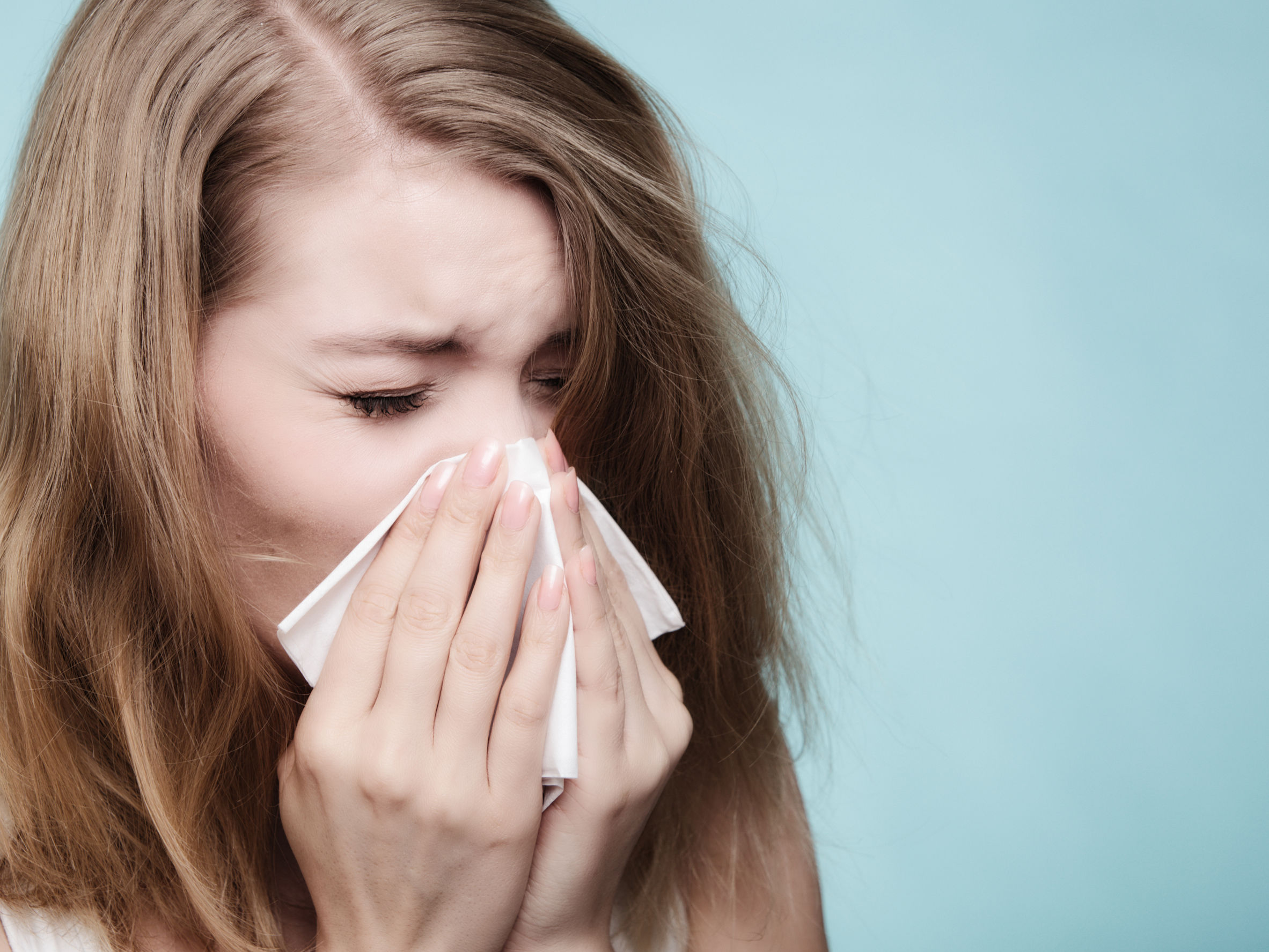
The symptoms of allergies can be treated using antihistamines or natural alternatives. This direct approach can definitely help manage the uncomfortable and annoying symptoms many people experience during the spring and summer. However, a long-lasting solution for allergies calls for a more comprehensive identification and treatment of the underlying causes. Here are three areas to consider when treating allergies:
1. Stress & The Adrenal Glands
Our adrenal glands respond to stressful situations by releasing a flood of hormones including cortisol and adrenaline (aka epinephrine). These hormones rouse the body for emergency action. But the hormones secreted by the adrenal glands in times of stress, are in fact the same hormones your body releases to counteract allergic responses. As a matter of fact, the emergency treatment for severe allergies like anaphylaxis, is a shot of epinephrine (aka epi-pen). Cortisol also has strong anti-inflammatory properties.
When we’re chronically stressed, the adrenals glands are thrown into overdrive and have to work hard to keep up with the demands of every day life. Eventually, they become depleted, exhausted, and are not able to keep pumping out these stress hormones. When our levels of cortisol and adrenaline are diminished, our body doesn’t have the resources it needs to combat allergies. So the function of the adrenal glands is KEY in moderating our histamine response.
The appearance or worsening of allergies is an early sign that the adrenal glands are burnt out. Sometimes a person will suddenly develop hives for no apparent reason, and others can identify certain triggers like foods or substances they’ve come into contact with. However, the real cause may be attributed to a decrease in adrenal hormones that result from chronic stress and adrenal fatigue. Treatment involves the use of safe, effective naturopathic therapies aimed at replenishing the adrenal glands and managing stressors, in order to re-establish balance and reduce allergy susceptibility. Stress comes in various forms- physical, as well as mental and emotional. Physical stress includes the toxic burden we deal with from our environment, which leads into the next underlying cause of allergies.
2. Overburdened Detoxification System
A second root cause of allergies is an excess of toxins that burden our bodies’ immune and detoxification systems. In our daily lives, we are exposed to a significant number of environmental toxins, including heavy metals, pesticides, solvents, plastics and more. Thankfully, our bodies are constantly eliminating toxins through the liver, skin, lungs, large intestine, kidneys and lymphatic system. These organs must be able to keep up with all the waste taken in and produced by the body. A problem arises when our detoxification system gets overloaded. Allergens and toxic chemicals over-stimulate the immune system, causing it to pour out inflammatory molecules such as histamine, which causes allergy symptoms. When our level of exposure exceeds our ability to detoxify, these inflammatory molecules accumulate, along with the toxins. This higher level of inflammation and histamine in the body makes us more susceptible to developing allergic reactions, possibly even to things we would not normally react to. Supporting our detoxification pathways and reducing our exposure in the first place, can be very helpful when treating allergies.
It’s also important to understand is that our detoxification pathways use up many essential micronutrients to break down toxic and allergenic chemicals. When the supply of micronutrients runs out, the detoxification reactions are slowed down. This can lead to more toxic waste build-up in the body, plus we can develop nutrient deficiencies.
3. Digestive Dysfunction
Allergies are a mediated by our immune system, however our immune system is very intricately connected to our digestive system. In fact, our gut houses a significant portion of our immune system and is lined with millions of immune cells. When there is digestive dysfunction or some degree of imbalance in our gut, the immune system is affected and allergies may arise.
- Reason #1: When your ability to digest food has been compromised for whatever reason (e.g. low stomach acidity, digestive enzyme deficiency, an imbalance in the gut microbiome, gastrointestinal infections, etc.), undigested and unrecognized food particles make their way into the intestines. Once there, the immune cells respond as though they’re foreign invaders. Histamine and other inflammatory molecules are released as a response to this “attack”. This puts additional strain on the immune system, which is also trying to handle foreign substances coming into the body in the form of environmental allergens like dust, pollens and dander. The outcome is a state of “information overload” or hypersensitivity. Our immune systems end up releasing too much histamine resulting in allergy symptoms.
- Reason #2: A leaky gut (also known as intestinal hyper-permeability) is a condition in which the lining of the digestive tract becomes inflamed and porous. Causes of leaky gut include stress, infections, medications, food sensitivities and more. When the gut becomes leaky, undigested foods, bacteria, yeasts, and other toxins enter the bloodstream through the gaps in the gut lining. Our immune system sees this as an invasion and launches an attack on these substances, by releasing histamine and inflammatory molecules. This reaction leads to allergy symptoms like hives, itching, swelling, runny nose and watery eyes.
By repairing your leaky gut and improving digestive function, you can help resolve allergy symptoms.
Speak with your ND about what factors may be contributing to your allergies. Taking an individualized approached is always advised in order to achieve the best possible outcomes.


